
Honda has announced that the 2021 Honda CRF300L and CRF300L Rally will be coming to the North American market. There was some speculation about whether or not the United States would see the revamped dual-sport motorcycles after they were announced in Europe and other countries last month. The CRF250L has served as Big Red’s entry-level dual-sport offering since 2012, and the CRF300L is a welcome update, not only delivering more power but less weight and several chassis upgrades.
2021 Honda CRF300L and CRF300L Rally | First Ride Review
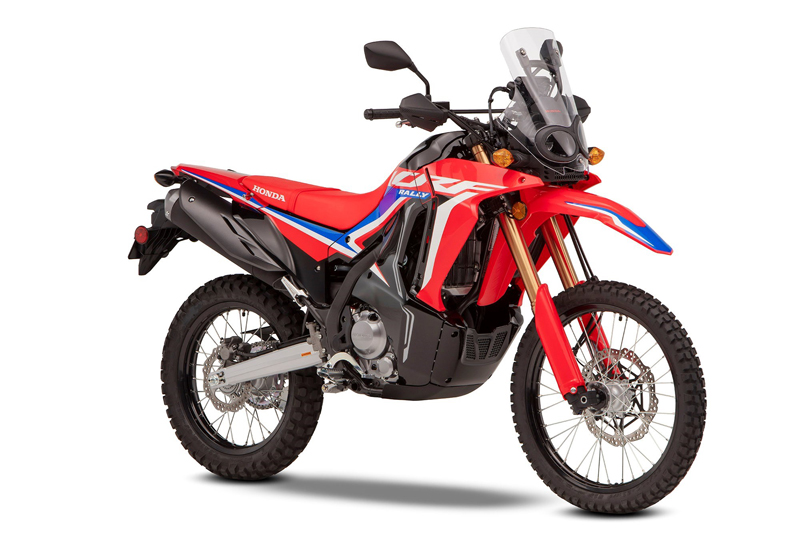
Spurred by Euro 5 emissions standards, the most apparent update for the CRF300L platform is a larger DOHC single-cylinder engine, bumped up 36.4cc to 286cc by increasing the stroke from 55mm to 63mm; bore is an unchanged at 76mm. The longer stroke netted a respectable boost in peak horsepower, gaining 2.5 points to 27.3 horsepower at 8,500 rpm, and a 2.9 lb-ft bump in torque, to 19 lb-ft at 6,500 rpm. This will surely benefit riders that need to extract the most out of their dual-sports on the highway or when hitting the trail. Engineers have also updated the cam timing, air intake and exhaust system.
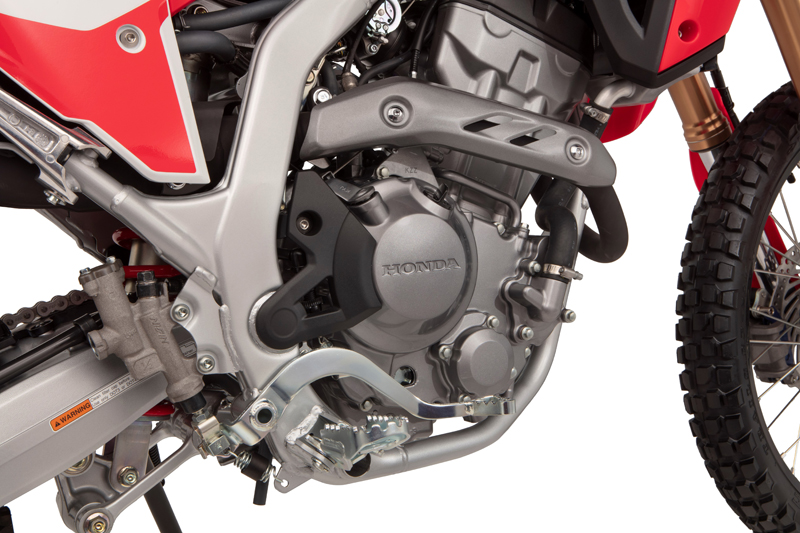
The six-speed gearbox utilizes shorter ratios in 1st-5th gears to improve acceleration, while the 6th gear is lengthened and acts as an overdrive gear for highway use. Moreover, the CRF300L motorcycles are equipped with an assist-and-slipper clutch, eliminating unwanted wheel-hop when downshifting aggressively.
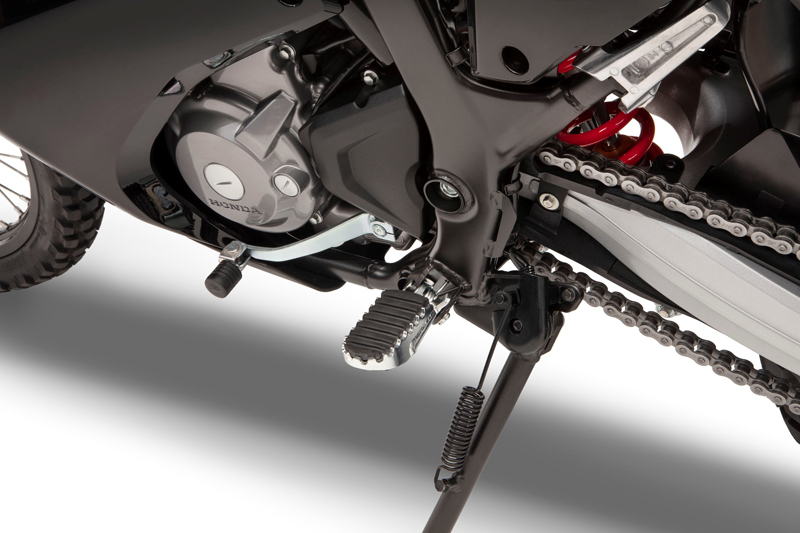
More power is always appreciated, but it is a match made in motorcycle heaven when married with lighter weight. The virtually all-new CRF300L is whittled down to a relatively svelte 309 pounds wet, 11 pounds lighter than the outgoing CRF250L. Engineers optimized the steel frame’s tube thickness and redesigned the cast aluminum swingarm that Honda says provides superior lateral flexibility and feedback. These changes bode well for dual-sport riders looking for better grip and feel when riding off-road.
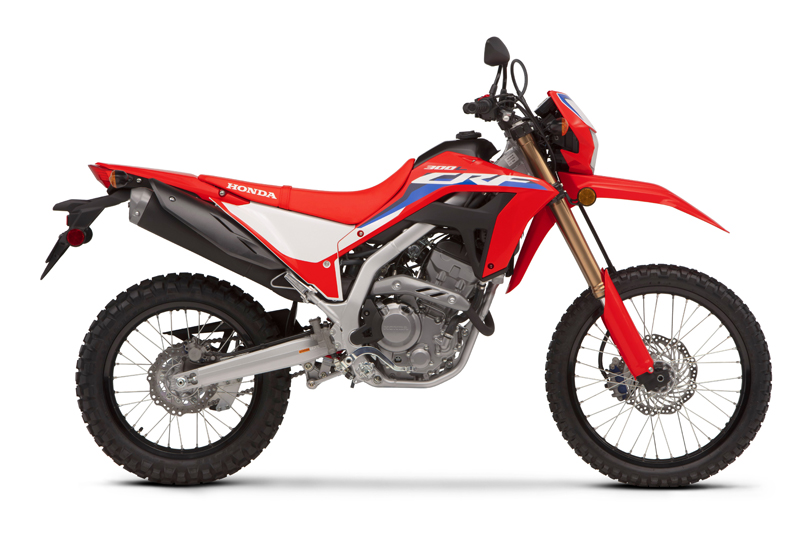
Fuel capacity on the CRF300L is reduced to 2.1 gallons. Meanwhile, the CRF300L Rally features a larger 3.4-gallon fuel tank to accommodate greater range.
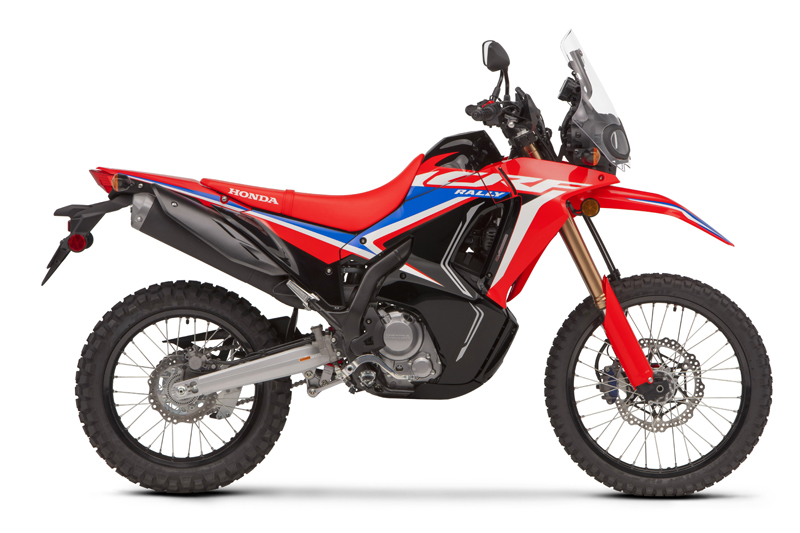
The chassis geometry is updated as well, with the wheelbase growing half an inch to 57.2 inches. Rake and trail are marginally tightened up to 27.5 degrees and 4.3 inches, respectively. In a boon for off-road riders, ground clearance is increased over an inch to 11.2 inches on the CRF300L and 10.9 inches on the Rally by mounting the engine higher in the frame. Not only that, but the non-adjustable 43mm Showa fork and preload-adjustable Pro-Link shock feature 10.2 inches of travel at each end (up 0.4 and 0.8 inch, respectively). We do hope that spring rates and damping reflect the needs of a heavier-set North American market. Both bikes ride on 21- and 18-inch wheels.
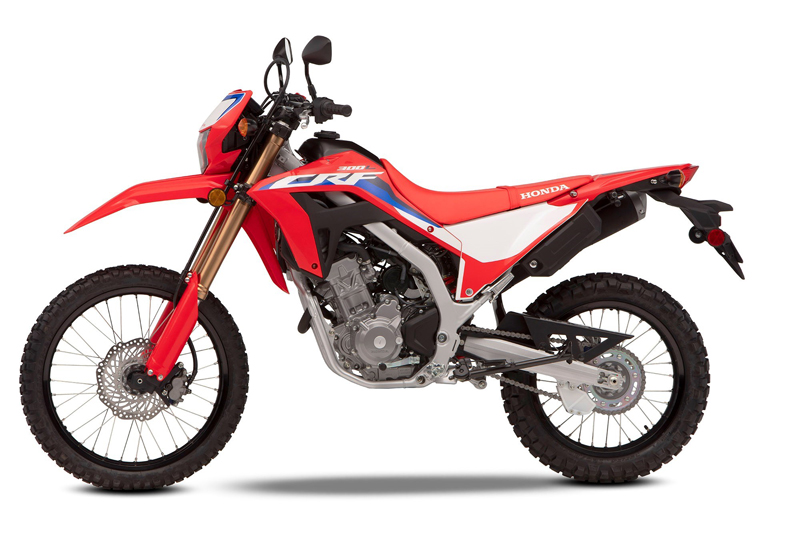
Ergonomics have an eye for comfort, with the handlebar featuring increased sweep, while the footpegs are relocated further back and lower. The CRF300L also allows increased movement while on its 34.7-inch saddle, thanks to a slimmer seat profile. However, the Rally seat height comes in at 35.2 inches due to additional padding, meant for longer rides. Both machines use a new LCD instrument panel.
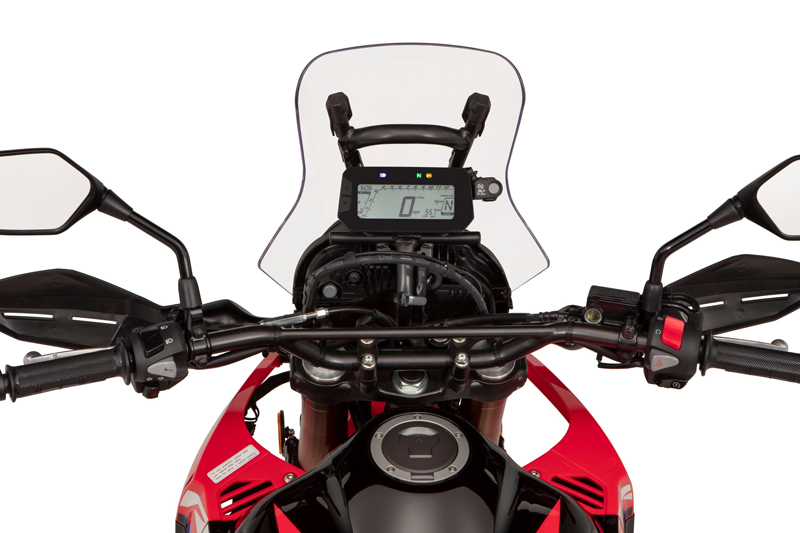
Braking equipment varies between CRF300L and Rally models. The standard dual-sport uses a single 256mm front rotor and two-piston caliper, accompanied by a single 220mm rotor and single-piston floating caliper in the rear. Switchable ABS (disables rear only) is available for an additional $300.

The Rally model features a beefed-up front brake to compensate for its additional weight. To that end, a single 298mm rotor and the same two-piston caliper is used in the front. Again, switchable ABS (disables rear only) is available for an additional $300.
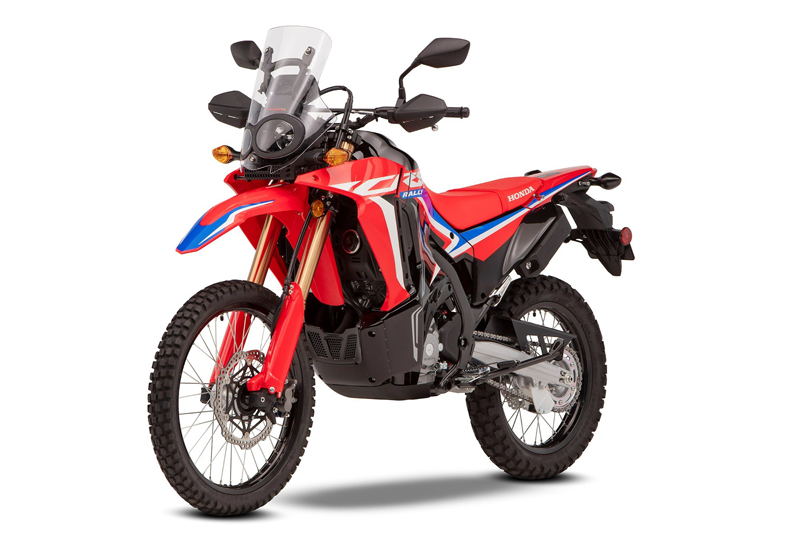
What differentiates the CRF300L and CRF300L Rally is evident in photos as they share all critical components. The CRF300L borrows much of its stylistic cues from the CRF450RL, giving it a much more aggressive motocross vibe. Unlike the Rally, the standard dual-sport uses a conventional bulb headlight.
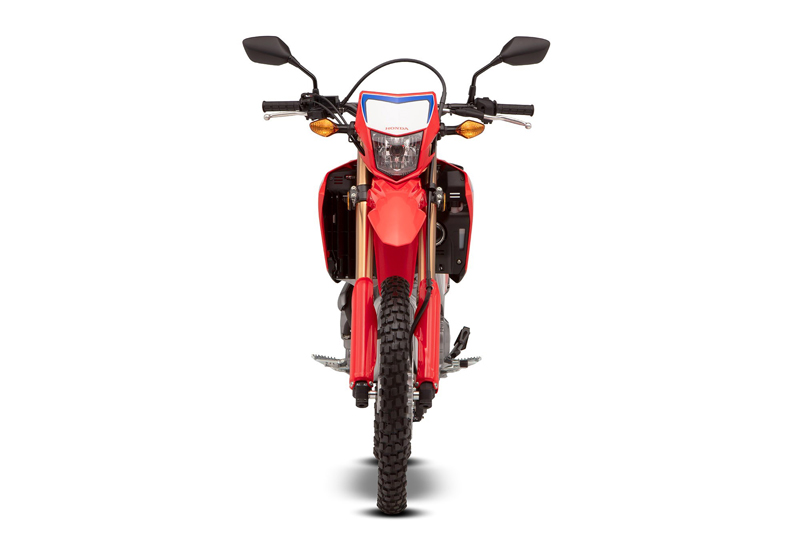
In celebration of Honda’s recent Paris-Dakar Rally win, the CRF300L Rally takes a page from Ricky Brabec’s race-winning steed, utilizing a larger 3.4-gallon fuel tank, handguards, a fairin, and bug-eyed LED headlights. It also uses weights in the handlebar and rubber inserts in the footpegs to reduce vibrations. These extras add up, and the CRF300L Rally has a claimed weight of 333 pounds wet, 8.7 pounds lighter than the outgoing model.
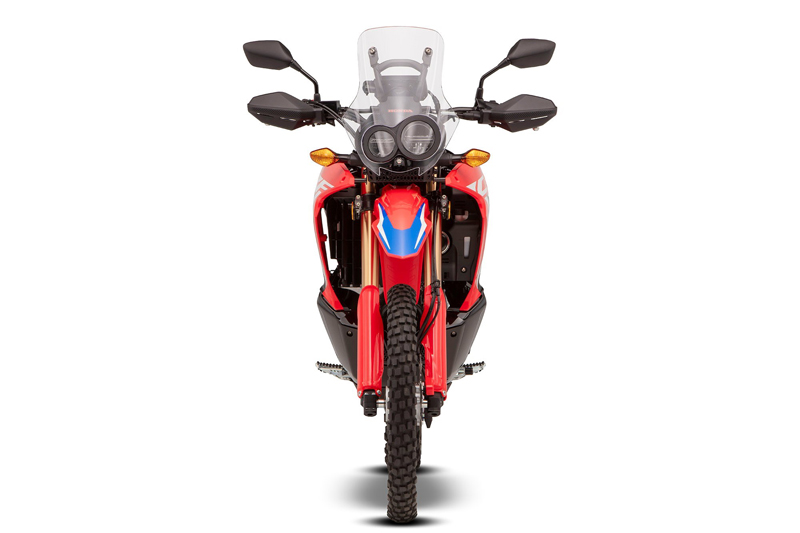
Some of the most fun I’ve ever on a motorcycle is when riding dual-sports, and I can’t wait to review these steeds. MSRP for the 2021 Honda CRF300L is $5,249, and the 2021 Honda CRF300L Rally will set you back $5,999. They’ll be available in the U.S. in March. For more information, visit Honda.
2021 CRF300L and CRF300L Rally Photo Gallery:





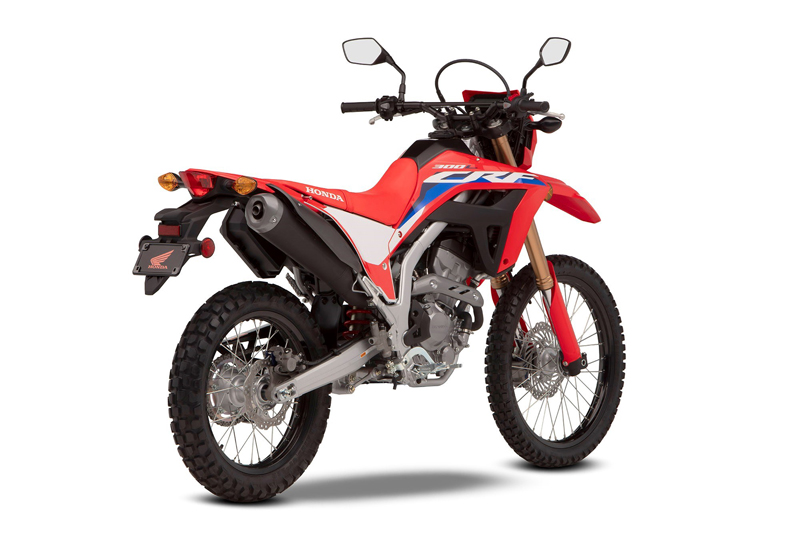
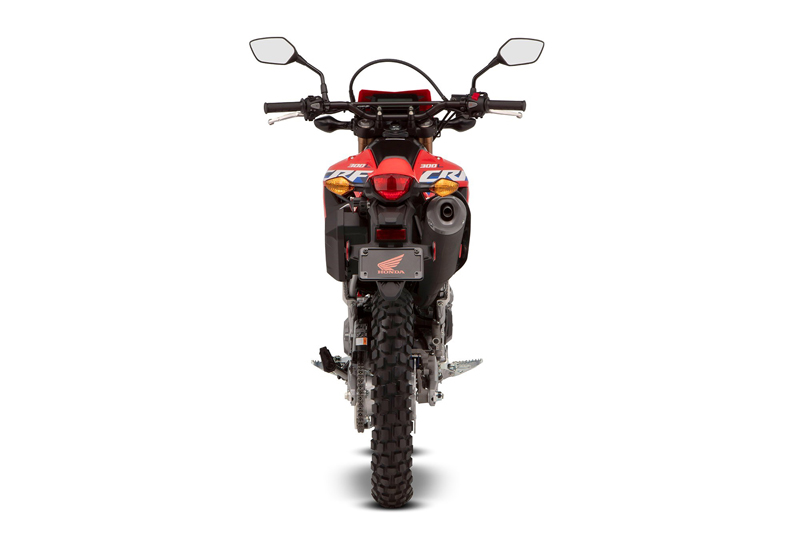
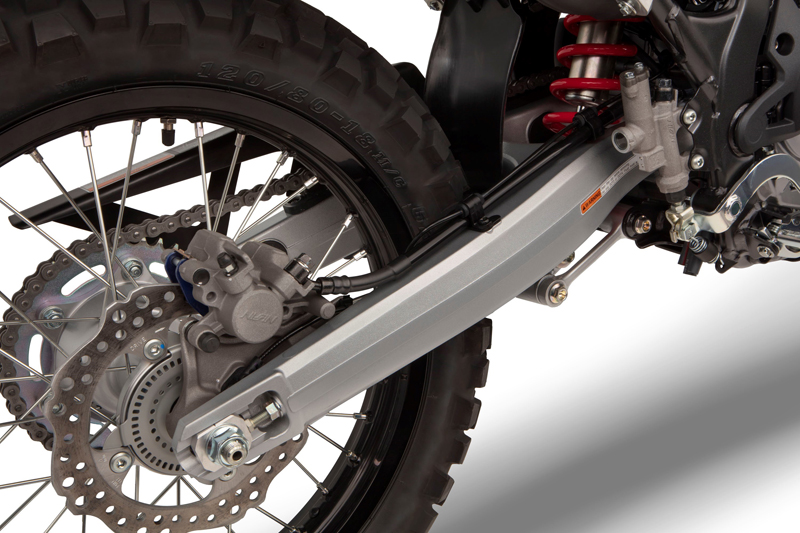
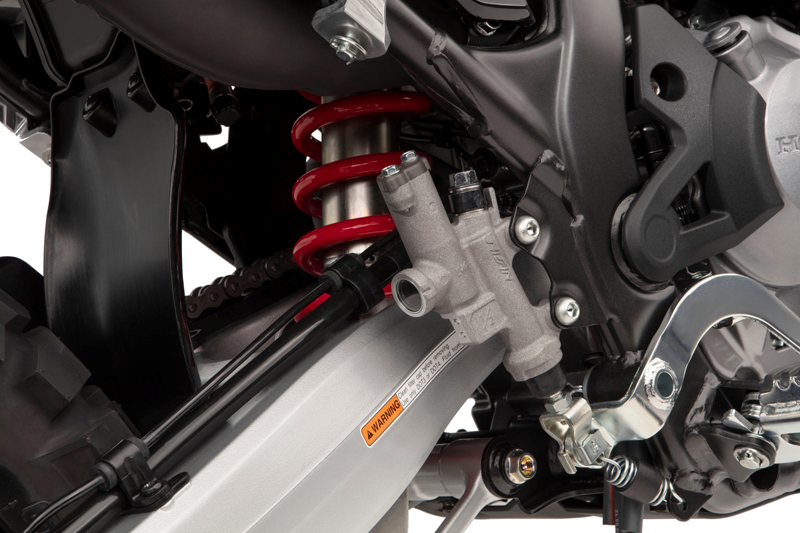
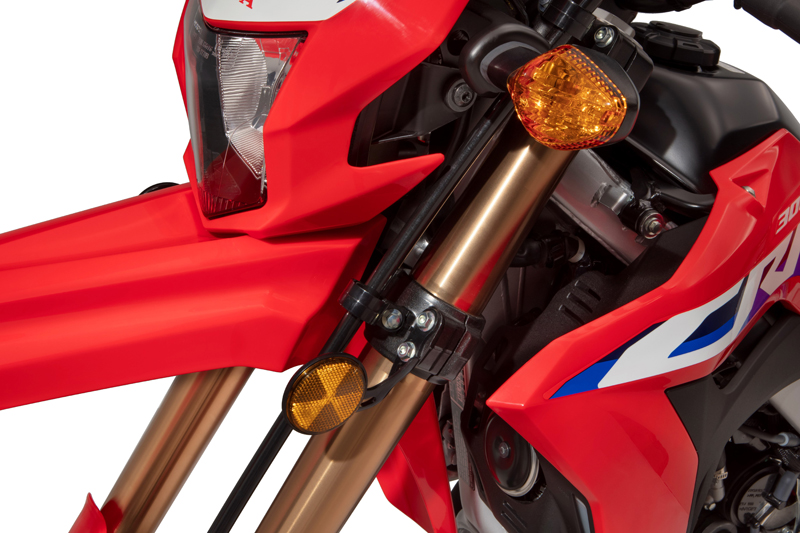

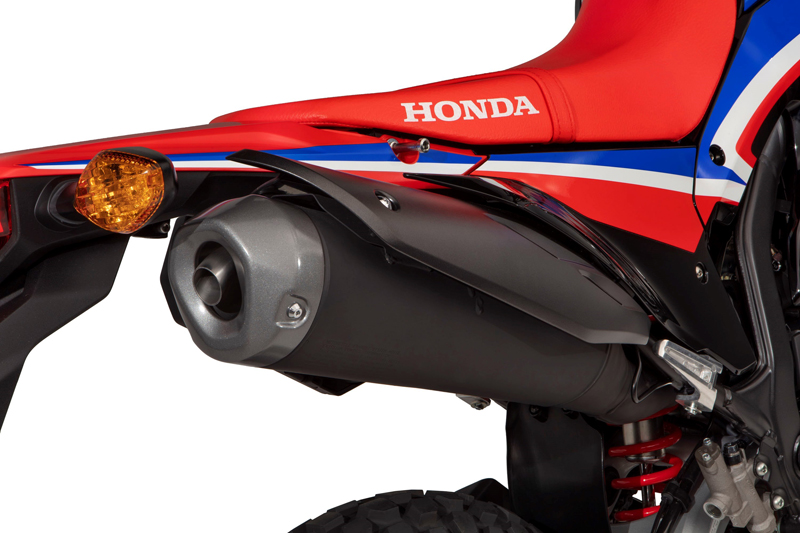
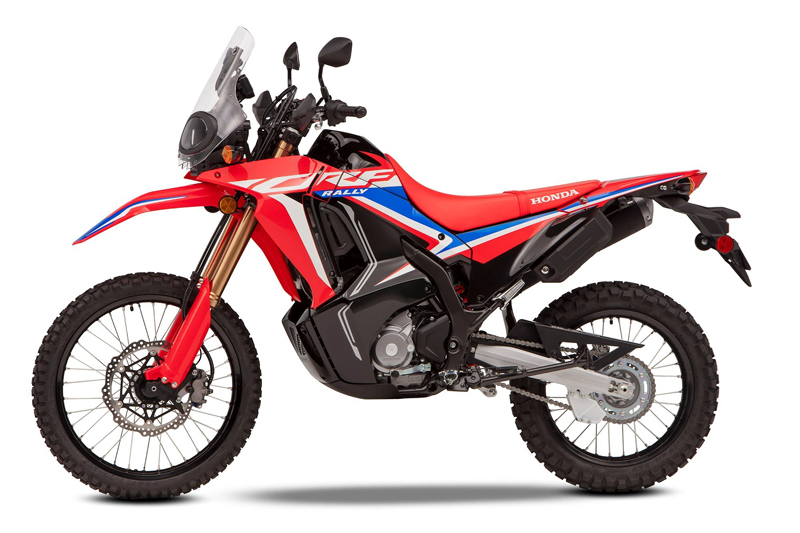




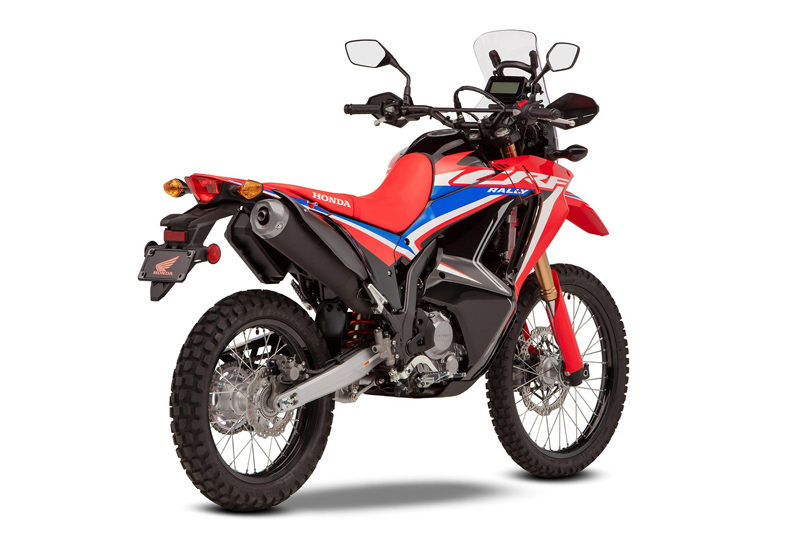
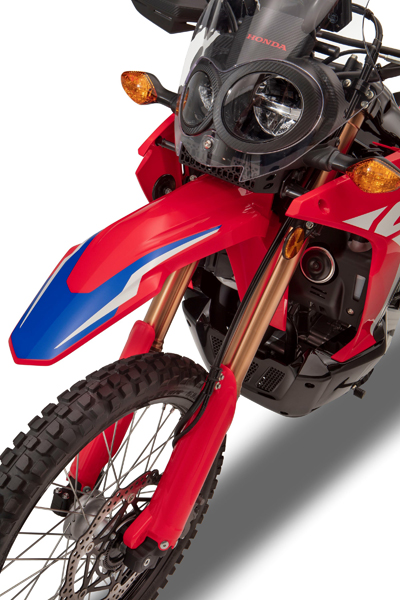


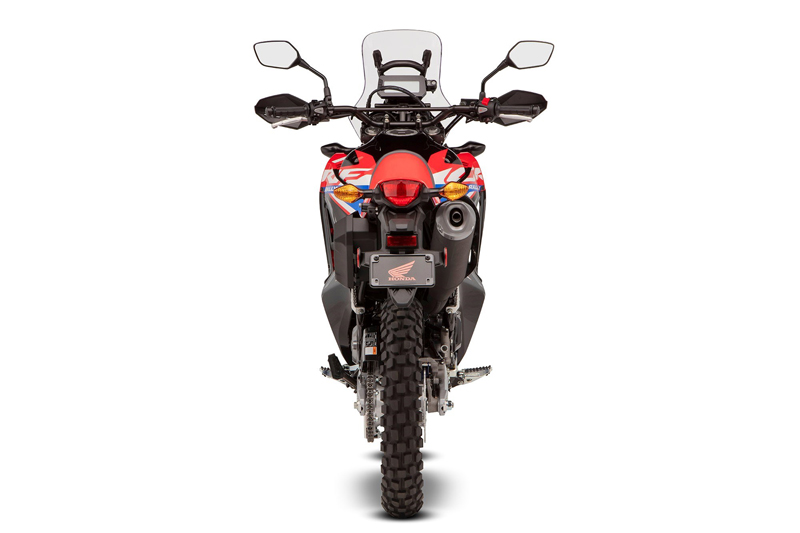
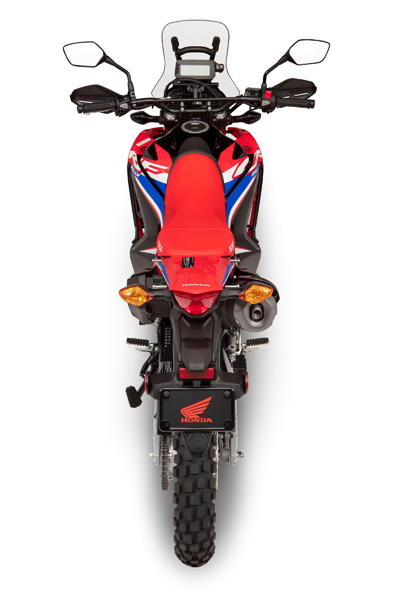








Why are we not getting the new LED headlight??? It looks so much better!!
…that’ll be next years update 🙂
Is the new look with LED headlights approved for 2022 sales in Europe? I really like the new version and willing to wait for a year, if this is true.
DOT regs and approval.
27.3 hp my lawn tractor has more than that .
This will cut across the grass quicker than any lawn tractor!
And will be be much more FUN!
Can your lawn tractor do 85mph? Is your lawn tractor street legal? Keep your pointless remarks to yourself.
What lawn tractor do you have and i doubt it weighs less than 300lbs.
I’d love to see Honda use this engine in an old style street scrambler, like the old CL series of bikes. Great on the street and a little light off roading. Now THAT I would be interested in.
Another bike that people with short inseams can’t ride. Don’t even waste my time.
Unfortunately bike makers can’t make models to suit every body shape/size. Try the grom or monkey bike.
I have a 30in inseam and am 5’7”. I own a 300l and have zero issues.
It really would be nice to see a few more bikes with lower seat height. Now every rider is 6’ tall.
Nice trail bike with a lower seat height sure would keep me from falling over as much when having to stop on off camber trails. My 1981 XL500S wasn’t that tall and it did GREAT on trails. Wish I still had it.
Not sure what all the fuss is….there are multiple wats to lower a bike, some free.
Actually it’s not so easy to properly lower a bike more than a very small amount. If you mean lowering the suspension it means rebuilding the front and rear by a professional suspension shop with lot so of labor and parts. You’ll almost definitely have to buy new springs unless you are extremely light to deal with the reduced travel. Just raising the fork tubes and putting a link on there usually wrecks the handling of the bike. It can be done but again by a suspension shop with new springs. It’s usually better and cheaper to just buy a bike that fits rather than try to reinvent omen to what you want.
I have a 28 ” inseam and sat on the 250 with a 34.5 seat height and was on tip of toes. With 1.5″ lowering links and motorcross boots, I would be close to be flat footed. Going to get the 300RL as I will be on back and dirt roads. Some bikes allow you to raise the fork tubes in the triple clamp and inch or so. May also do this if possible and this would lower bike even more although it might require risers on handlebars.
Like Ben said another too tall dual sport. Give me the seat height and size and weight of the Yamaha XT250 and that would be perfect for me.
My point was an XT250 with the power of this bike.
Still waiting for Honda to do something (anything!) with the ancient XL650L. It’s way lighter and simpler than the new Kawasaki KLR650, but it needs updating badly- please Honda, lower the seat height so mere mortals can ride it, give it fuel injection and modern gauges, and some wind protection/larger fuel tank for longer rides. They’ve updated my 16′ Africa Twin several times since I bought mine, updated scooters and other bikes, so why does the excellent platform and popular category of 650 ADV elude them?
Excellent suggestions.
Add a 6th gear to your list and I’m in!
I noticed the bikes aren’t really different like they were last year. In 2020 the 250l rally had an inch longer suspension and a higher seat. That gave riders some more choice as to ride height. This year the rally gets the shorter suspension of the non rally bike. Basically instead of a different bike the rallying is just a headlight, fairing, fuel tank, seat, and slightly larger front disk kit. I’m not saying those aren’t helpful but just pointing out one of the main differences between these models is gone.
Also, I’d guess a lot of the weight savings they are excited about comes from this shortening of the suspension. That being the case, I do feel 10 inches of suspension is enough for a non-competition trail bike.
If you forget the slipper clutch and the changes on ALL of the gearing and the added weight on the handle bar, the rubber inserts on the seating and pegs, and the 8 lbs lighter, and the higher cc’s … yes, it’s pretty much the same bike!! lol…
He means the differences between rally and non rally this year. Not between this year and last.
Thats why you have electric meat cutters. Pull some staples, trim the seat a inch or two, put in a gel insert to help the boys out, and a throw in a seat warmer after you are carving.. Staple back up your done; thats all a professional shop would basically do.
is it elect start??
Can you spot any kickstart?
I recommend you fellas see Itchy Boots on Youtube, currently doing South Africa off the beaten track on a CRF 250 L…. The CRF 300 L rally is all the bike you will ever need. See her doing the Sani Pass on the 250 L.
Stop whining all you midgets.
I am 5’8 and I can almost flat foot this bike it isn’t that tall at all and it’s my first bike ever riding didn’t even know how to use a clutch 2 days ago
I’ve owned the 2013 CRF250L and clocked 34k kms on it within a span of 5 years. The power was adequate for city rides, nevertheless, I always wished it had close to 28-30hp offering top speed of at least 140kph if not more, when riding on the highway.
Whilst I’ve only used my bike for commuting and work errands, and never off road, it is a very easy machine to ride and highly maneuvarable in tight city traffic.
I’m 5’5″ (28 inseam) and have never had any issues due to my height limitations. Never made height adjustments to the bike and could plant one quarter of both feet on the ground. The 300L is an inch taller, but I’m pretty sure I’ll ride it like I was born with it. Being able to tip toe is good enough at traffic lights.
The only reason I’m not getting the 300L is because it looks just like the old version and that offers me no joy to spend precious money in these troubled times. Waiting for them bikes to arrive with their new face to make my purchase.
I bought the 300l with ABS two weeks ago and have 250 miles on it so far. Had an 05 DRZ 400s. Loved the power of the DRZ, but it wasn’t nimble and pretty tall seat height. This bike has a softer suspension and with a 31” inseam, I’m on the balls of my feet. Power is excellent for highway, but I’d shy away from longer runs on the freeway. Done a bit of trail riding and it’s far more nimble than my 400. The digital display is crystal clear and love the features. Been a fantastic bike thus far. It’s far easier to ride than the 400, but down on power from it. After riding some newer 250’s, this a happy medium on power between the 400 and 250.
I dont understand the problem with seat height.The important part is how it feels once underway.Just hang off at stops.It is a dirt bike,witch ironically makes a great city bike.Also,why call it entry level?Or is it is the size is the inverse?